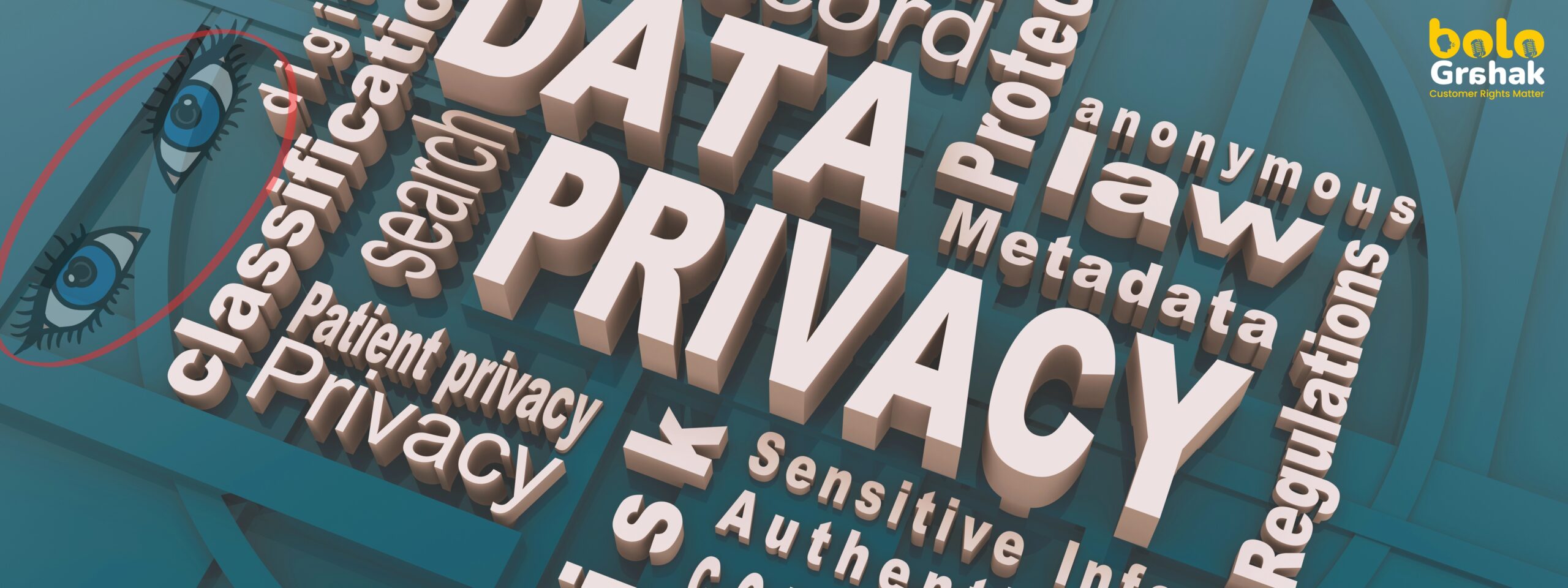Related Post







In today’s digital era the right to privacy has gained significant importance due to the increasing collection, storage and use of personal information. As consumers we have the right to control our personal data and expect it to be handled responsibly. Personal data, when misused or inadequately protected, can result in financial fraud, identity theft and other crimes that collectively cost consumers, businesses and governments millions of dollars each year. This blog highlights the significance of consumer rights and the need to safeguard personal information.
1. The Right to Privacy in India: The right to privacy is protected under Article 21 of the Indian Constitution which guarantees the right to life and personal liberty. In 2017 the Supreme Court of India declared the right to privacy as a fundamental right strengthening the legal framework for data protection in the country.
2. The Personal Data Protection Bill: To provide a comprehensive framework for data protection India introduced the Personal Data Protection Bill in 2019. The bill aims to empower individuals with control over their personal data and establish stringent obligations for businesses handling such data. It includes provisions for consent data localization and the establishment of a Data Protection Authority.
3. Digital Personal Data Protection Bill: The Digital Personal Data Protection Bill 2023 is a comprehensive legislation aimed at safeguarding personal data of individuals in the digital age. It addresses the growing concerns over the misuse breach and unauthorized sharing of personal information. Under this bill individuals have the right to know what personal data is being collected, the purpose for its collection and how it will be used. They also have the right to access and correct their personal information as well as the right to be forgotten. This empowers individuals to have better control over their own data and enables them to make informed decisions about their privacy. In summary the Digital Personal Data Protection Bill 2023 aims to establish a robust framework for the protection of personal data in the digital realm. By setting clear guidelines and empowering individuals with greater control over their data it seeks to ensure privacy and security in an increasingly connected world.
3. Aadhaar Card Controversy: India’s Aadhaar card is a unique identification number assigned to residents containing personal information such as bio-metric and demographic data. In 2018 concerns were raised regarding the potential misuse of Aadhaar details due to inadequate data protection measures. This incident highlights the importance of implementing robust privacy safeguards to prevent unauthorized access and misuse of personal information.
4. Telecommunication Privacy: Another significant privacy concern in India relates to telecommunication services. Several instances of unauthorized sharing of personal information by telemarketing companies have been reported leading to unsolicited calls and potential privacy violations. These incidents underscore the need for stricter regulations and enforcement to protect consumer privacy.
5. E-commerce and Online Transactions: With the rapid growth of e-commerce in India ensuring the privacy and security of personal information during online transactions has become crucial. Instances of data breaches, identity theft and fraudulent activities have raised concerns among consumers. E-commerce platforms must prioritize the protection of consumer data through robust cyber-security measures and transparent data handling practices.
6. Social Media and Data Privacy: The extensive use of social media platforms in India has raised concerns regarding the privacy of personal information. The Cambridge Analytica scandal where personal data of millions of Facebook users was harvested without consent serves as a stark reminder of the potential risks involved. Users must be cautious about what information they share online and understand the privacy policies of social media platforms.
Some common consumer privacy features:
Do-not-call lists.
Verification of transactions by email or telephone.
Technologies for email.
Passwords and multi-factor authentication.
Encryption and decryption of electronically transmitted data.
Opt-out provisions in user agreements for bank accounts, utilities, credit cards and other similar services.
Digital signatures.
Bio-metric identification technology.
The right to privacy as a consumer is essential for safeguarding personal information in today’s digital world. Consumer’s personal data must be protected from unauthorized access misuse and breaches. The Personal Data Protection Bill, the Aadhaar card controversy, telecommunication privacy concerns, e-commerce transactions and social media privacy issues are some examples that underline the importance of robust data protection measures in India. As consumers it is crucial to be aware of our rights and demand stronger privacy safeguards from businesses and policymakers to ensure our personal information remains secure. If you have any prior experience regarding this type of issue, do let us know in the comments.
Source: techtarget.com






Your Comment